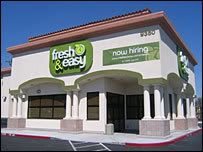The Credit Crunch Could Crush the Euro Photo courtesy of Reuters
Photo courtesy of ReutersTHE TELEGRAPH: The credit crunch is hammering the US, which now faces a likely recession. Things don’t look great for the UK either; here growth could plunge to 1 per cent next year.
There is a near-consensus among economists, in fact, that the Anglo-Saxon world created this credit crunch and will likely bear the most pain.
The eurozone, it is widely assumed, has been less affected by sub-prime. Most investment banks predict the 13-country region will out-perform the UK in 2008.
A slew of recent data tells me we should now question that assumption. If I’m right, and the eurozone does a face serious drop, us Brits would be foolish to grin. We like to revel in Continental misfortunes, but the single currency area matters hugely – accounting for three-fifths of UK trade, more than four times as much as the States.
The reason the eurozone now worries me is the emerging picture of sharply rising consumer prices on the one hand, and falling output on the other. Just like the Bank of England, the European Central Bank will on Thursday try to set monetary policy not only to deal with inflation, but also bolster growth.
Eurozone base rates are likely to be held at 4 per cent – for the sixth month in a row. Most observers think if they do shift this week, the only possible move is up.
That’s because, despite the credit crunch, the ECB’s rhetoric has remained very hawkish. But, in reality, eurozone policy makers now face a classic growth-inflation dilemma – one they share with other Western central banks.
The ECB’s predicament is made worse, though, by the euro/dollar exchange rate, and the single currency’s structural flaws. These two unique aspects of the region’s quandary are why its prospects are more gloomy than assumed.
The credit crunch could crush the euro >>> By Liam Halligan, Economics Editor
Mark Alexander


